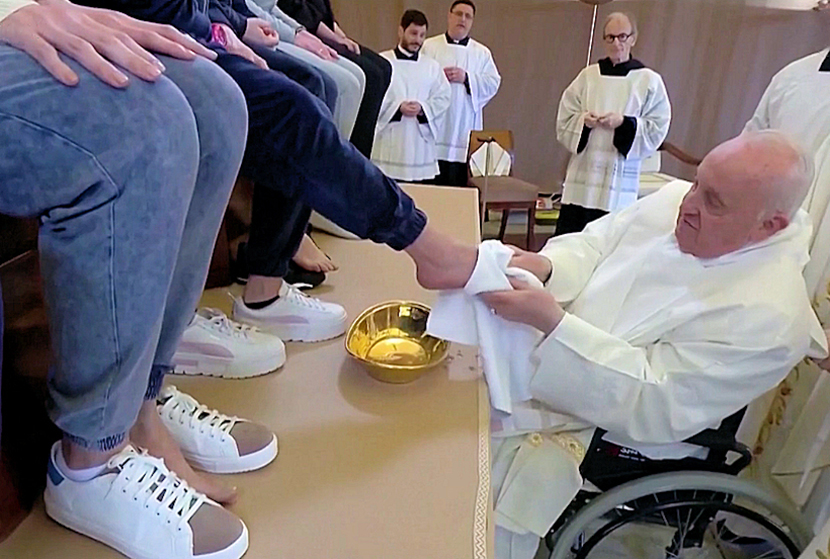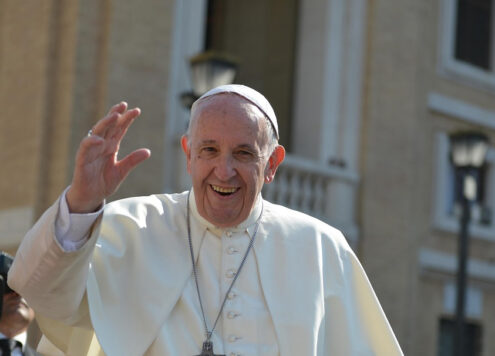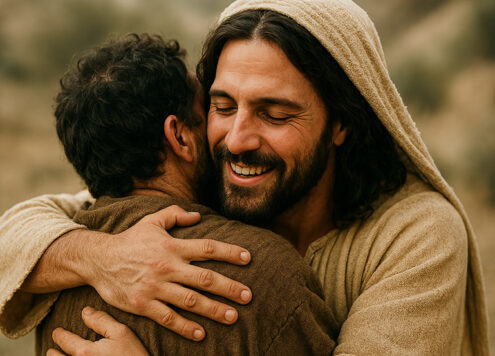The concept of God’s Will is one of the most misunderstood topics in Christian theology. Many assume that everything that happens—whether good or tragic—is an expression of God’s Will. We frequently hear phrases like, “It’s God’s Will,” in response to both blessings and calamities.
But is this truly the case?
In reality, life is filled with all kinds of events—some joyful, some fortuitous, some upsetting, and some deeply painful. The gift of faith helps us navigate our journey through life, including the good and the bad times. Yet, attributing every tragedy, injustice, or catastrophe to God’s Will misrepresents its essence. The suffering of innocent children in war zones or the plight of the homeless cannot be explained away as God’s Will. Instead, these are the consequences of human choices in a broken world that we, through faith and action, are called to mend.
So, what is God’s Will, and how can we live in conformity with it?
When we pray, “Thy Will be done, on earth as it is in heaven,” (Matthew 6 :10) we should be making a personal commitment. This commitment transcends passive acceptance of life’s circumstances. It is a call to actively conform our lives to gospel values—love, justice, compassion and humility. God’s Will is not an acceptance of evil or resignation in the face of suffering; it is the pursuit of what is good, noble, and beneficial in spite of evil and suffering. Imagine a world where everyone embraced this mentality—choosing selflessness over selfishness, compassion over indifference, love over hate. Such would be a world of God’s kingdom on earth. Such would be a world in which God’s will is done on earth as it is in heaven.
Christ emphasized love as the cornerstone of God’s Will. His “new commandment,” instructs us to “love one another as I have loved you,” (John 13 :34) and St. John reminds us: “If anyone says he loves God but hates his brother, is a liar” (John 4; 20). This is the highest love, one that actively sacrifices, forgives, and uplifts. Christ’s life—marked by compassion, humility, and service—is the example of how to embody God’s Will on earth.
In today’s world, the “good life” is often equated with material success—wealth, power, and possessions. Yet, Christ rejected these temptations of the world. During His three great temptations in the wilderness (Mathew 4: 1-11), He chose obedience to God’s Will over the allure of power, materialism and fame. As his followers, we are called to redefine the good life, not as the pursuit of selfish gain but as a life lived in service to others. The gospel of Matthew 25 quotes Jesus: “Whatever you do to the least, you do to Me.” This means helping one another, especially the least among us: giving food to the hungry, clothing the naked, sheltering the homeless, and welcoming the stranger. These are tangible ways to live out God’s Will.
The violence, injustice, and suffering in the world stand in stark contrast to God’s Will. From homelessness to conflicts that destroy lives and communities, these societal evils demand practical actions to make God’s Will real. Ignoring the needs of others or failing to stand against oppression is contrary to God’s will. But living out God’s Will requires sacrifice and courage. Those who accept His will understand this deeply. Mary, the mother of Jesus, found fulfillment in her openness to God’s will (Luke 1: 39-45). Her example was true service, not lip service.
At its core, God’s Will is transformative. It calls us to conform not to the world but to Christ. This transformation begins with a personal relationship with Him, guiding us to reject hypocrisy, selfishness, and the temptations of worldly success. It is not enough to proclaim the good news of the gospel; we must show it in our daily lives. Whether facing personal challenges or societal injustices, we are called to ask, “What would Jesus do?” and then act accordingly.
By embracing Christ’s example and committing to serve others, we can bring heaven down to earth.
Thy Will be done, on earth as it is in heaven: Let us not only pray these words but live them.
—Fr. Hugh Duffy, Ph.D.











10 Comments
Ellen Mongan
Thank you Father Duffy! You just confirmed what God woke in my heart !
Ellen Mongan
Thank you Father Duffy! You just confirmed what God woke in my heart !
Tom
Thank you Fr. Hugh. I am so glad you took the time to share the meaning of God’s Will and I hope your explanation reaches those who seem to believe that it is God who is to blame for all the wars, homelessness and all that is bad in the world today resulting in death, hardship and falling numbers to Trust in God. satan I am sure is very happy with the state of the world today. So sad.AMEN 🙏.
Bartholomew Okere
Fr.Duffy, a controversial topic indeed, the will of God.Because God’s ways are not our ways nor his thoughts our thoughts meaning that the will of God is that we should be holy and blameless before him.That we should be sanctified like Mary and Joseph in righteous living.God’s will is found in the good and not in the bad and the ugly.Let us live the life of Matt 25ff in its fullest. Tx! Merry Chri
Julie Scimone
Amen!!j
Tom Rooney
Tremendous insight ,thank you Fr Hugh ,
Frank Lugenheim
Thank you, Fr. Duffy, for this insightful and thought-provoking post. Your emphasis on living out God’s Will through love, compassion, and action is such an encouraging reminder, especially in today’s world. I appreciate how you challenge us to go beyond passive acceptance and actively embody the gospel in our daily lives.
Blessings,
Frank
Mary Ford
Thanks Fr. Duffy for your constant encouragement. Now, there are hungry and homeless and worse “out there”. There are empty churches and convents. We are told we cannot bring “these people” in to our churches because of liability, insurance, or other reasons. What would Jesus do? Would he allow that? If that’s the reason the churches can’t greet and help the least among us then we don’t have
Mary Ford
Thanks Fr. Duffy for your constant encouragement. Now, there are hungry and homeless and worse “out there”. There are empty churches and convents. We are told we cannot bring “these people” in to our churches because of liability, insurance, or other reasons. What would Jesus do? Would he allow that? If that’s the reason the churches can’t greet and help the least among us then we don’t have
Mary Ford
Continued…we don’t have freedom of religion. The people ought to do something about this. To be Christian, we have to do what Jesus taught us to do…feed the lambs and the sheep.